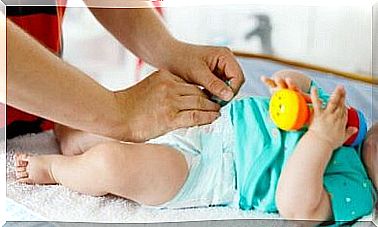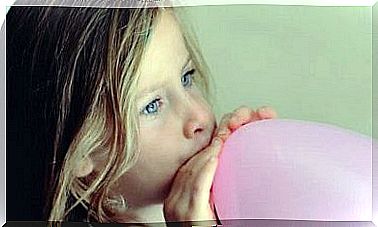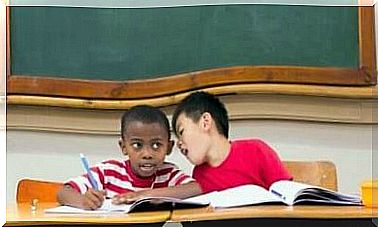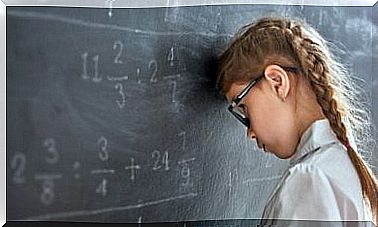The Effect Of Maternal Depression In Children

When a mother suffers from depression, her children also experience the consequences. In this article, we will tell you about how to reduce the impact of maternal depression in children.
Depression during pregnancy and after giving birth is much more common than you might think. Furthermore, there are many women who continue to be in this state for years, affecting their parenting. Knowing how maternal depression affects children is the first step to making appropriate reservations.
Many of the symptoms of depression are easy to confuse with normal experiences that have to do with pregnancy and the time after birth. Therefore, there is a high risk that many women will not get the diagnosis and treatment they need. And, it will only make the seriousness of their situation worse.
However, the consequences of depression do not only affect the women who suffer from it. Depression affects everyone around them, especially their children. Since early childhood is a crucial time for a person’s development, a child’s early experiences can continue to affect them, even in adulthood.
How does maternal depression affect children?
Even during pregnancy, children of depressed mothers may have an increased heart rate. Furthermore, there is a higher risk of premature birth and low birth weight. Later, these babies are less active and less sensitive to facial expressions and vocal expressions. Furthermore, they have a higher level of stress hormones than other infants.

At the same time, these children are more likely to develop mental illness and have difficulty adjusting socially and academically. Maternal depression is also likely to affect children’s intelligence levels, as well as the quality of their health. And, in conclusion, these children are at greater risk of developing depression during their lifetime.
However, not all children of depressed mothers exhibit these problems. It is an indication. Therefore, this relationship is not direct or unambiguous. More specifically, it tells us that there are certain mediating factors at stake.
In what way does this influence occur?
The quality of the bond between mother and child
It is crucial to establish a connection between mother and child when it comes to the well-being of the little ones. However, mothers suffering from depression have difficulty understanding the needs of their children correctly.
Similarly, they have problems when it comes to interpreting their communication. As a result, the synchronization between mother and child is poorer, which is very confusing for babies.
In some cases, mothers may not meet the needs of their children, or their responses to these needs may be inconsistent. Either way, it results in an insecure attachment, leading to emotional consequences for the children. However, it is the depression itself that prevents women from perceiving and responding correctly to their baby’s signs and signals.
Marital conflicts
Another of the most relevant areas that have an impact on children is the relationship between their parents. When one parent has an illness, such as depression, it will inevitably also affect the relationship with his or her partner.
In these cases, the positive communication between the two parties can become almost zero. Thereby, arguments and accusations become dominant. Furthermore, in general, they fail to practice conflict resolution, which only makes the situation worse. Observing conflicts between parents significantly affects a child’s functioning in several areas.

Insufficient stimulation
Finally, mothers suffering from depression are less involved in the upbringing of their children. Given their feelings of apathy and despair, they offer their children fewer learning experiences and tools. At the same time, they dedicate less time to sensory and intellectual stimulation.
Furthermore, they put forward a behavioral model that is inappropriate for their child’s future. The little ones grow up observing their mother’s behavior, where sadness, lack of interest and exhaustion are dominant. The continuous presence of this model, during a child’s upbringing, will have an impact on his or her personality to some degree.
How to reduce the impact that maternal depression has on children
If one wants to avoid this situation, the first thing one should do is reprimand a mother’s depressive state. It is important to be aware of any symptom, especially when the baby is born. It’s okay to ask for help. In fact, it is fundamental.
However, getting help from a professional is only part of the solution. One can also try to minimize the impact of maternal depression by paying attention to the mediating factors.
It is important that we offer our children appropriate stimulation and respond adequately to their needs. Furthermore, we should make an effort to provide them with a positive family environment, which will help reduce the impact of a depression in their upbringing.









